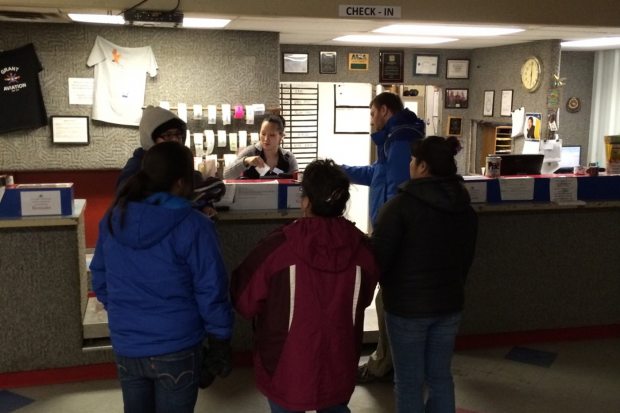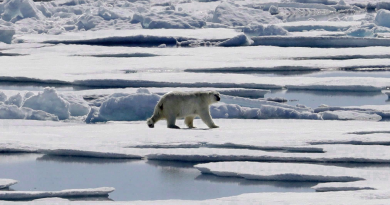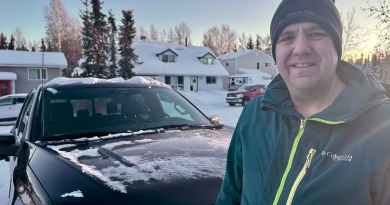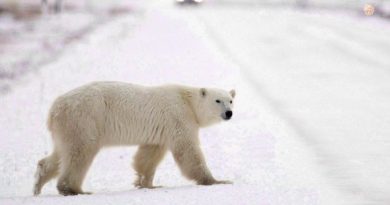Taking a taxi — make that an air taxi — to work in rural Alaska

BETHEL — Imagine flying to work in Anchorage from Eagle River. Or from Potter Marsh to downtown Anchorage. The few miles that seem like a simple road commute for Alaska’s big-city dwellers is an altogether different adventure when you leave the road system and get into rural Alaska.
In the communities surrounding Bethel, a hub city in the western part of the state, commuting often means taking a boat ride along the river, or zooming along in winter on a snowmachine. Bethel sits at the mouth of the state’s second largest river, the Kuskokwim, about 40 miles inland from the Bering Sea.
But in that in-between state between Fall and Winter, when the Kuskokwim river is too iced over to travel by boat but not icy enough to safely hold the weight of snowmachines and other vehicles, Alaska’s bush planes come to the rescue, leap-frogging commuters to work and home again.
A group of residents from nearby Napaskiak has been pulling together for about a week to split the cost of a private flight to haul them the seven miles that separates Bethel from their home village on the east side of the river.
At the end of the day Friday, four workers and two college students — all eager to get home — waited inside the lobby of Grant Aviation for the Cessna 207 they’d chartered to arrive. The cost of this small-town equivalent of carpooling in the same taxi to save money? $16.85 per person, the result of the $101 charter fee being split between six people. If you can fill all of the seats in the plane, it’s cheaper to go with a charter than with scheduled flights, the group said.
It’s a quick trip to Napaskiak, mere minutes. So fast, explained Gabe Carmichael, a systems analyst at the Lower Kuskokwim School District, that “we go up and then we go down.” Bethel remains in view the entire time.
College students Kimberly Nicholai and Stephanie Maxie were a part of the caravan. During the week they attend classes at the Kuskokwim campus of the University of Alaska Fairbanks. Nicholai is studying elementary education, Maxie, nursing. They’d gone home earlier in November by boat and noticed scattered ice on the river. By the next week, river traffic had been shut down.
For Maxie, the nearby campus is a great solution to keeping your family close by while getting an education. “I like going home every weekend,” she said as she waited for the plane. Weekends are spent hanging out, and playing basketball at the gym.
Also with them for the flight was Jackie Nicholai, a pharmacy technician for the Yukon-Kuskokwim Health Corporation, and Michelle Larson, a family advocate with the Child Advocacy Center in Bethel.
Seat number six for the flight went to Rev. Ishmael Andrew, an orthodox priest with the Diocese of Alaska. He serves as an assistant priest in Napaskiak, and works in Bethel as an “engaging men and boys coordinator” at the Tundra Women’s Coalition. With a wife and five young children at home, he was excited to get back to the village and spend the weekend with them.
Work-week commuters will have more options when the river finally freezes. Some years it takes only two weeks for it to set up. But the group recalled other years where it seemed to take six weeks for the ice to get hard and thicken. Once it does, they’ll be able to come in by snowmachine, or drive their trucks along the ice-road highway that forms on the river during winter.
Flights will still continue even after most are able to stick to land-based travel. Grant’s lead dispatcher Jaylene David said on any given day the company may have four to seven flights moving people between Bethel and the villages of the Lower Yukon-Kuskokwim River delta, as jury duty, school events and other activities routinely keep them in the air.
Contact Jill Burke at jill(at)alaskadispatch.com



